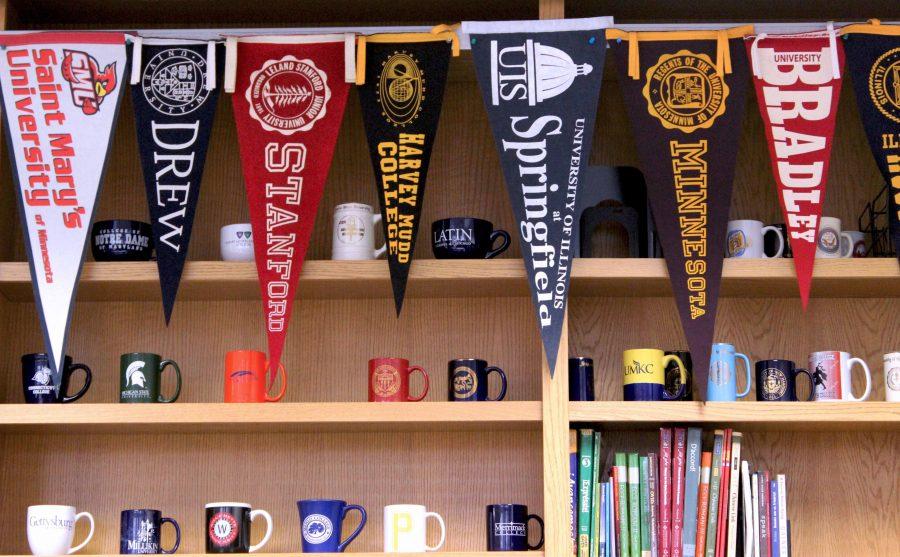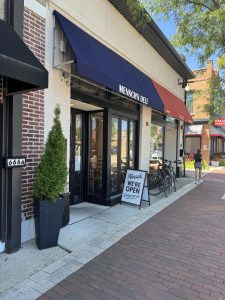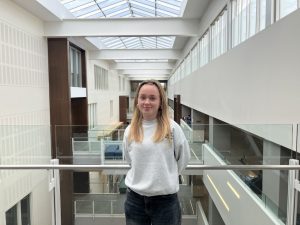College reps request change in duration of meetings
Pressure to attend meetings leads to stress over students missing class
October 11, 2016
Until this year, many universities that visited New Trier stayed 60 minutes, spanning two periods to allow more scheduling flexibility for students. This year the visits have been shortened to 40 minutes, causing a disruption to the status quo.
“We were lucky to have them stretch over two periods because every other high school in the area only had 45 minutes,” Post-High School Counseling Department Chair James Conroy said.
According to Conroy, it was universities who decided to only stay 45 minutes. “We finally got put in our place that we are no different than everyone else,” Conroy said. “We had a honeymoon there and the honeymoon is over. We didn’t have a choice.”
Economics Teacher Jennifer Niemi, who teaches seniors, has noticed a new trend surrounding these meetings though cannot conclude that they are due to the shortened time.
“This year I haven’t had anyone ask to go to any,” Niemi said. “I don’t know if it’s a fluke or if it’s related but I haven’t had kids asking to go and there have already been a few schools in.”
Though the shortened period is new this year, the paranoia and rumors surrounding these meetings continues to thrive with a new senior class.
“I feel it’s important to get your name recognized by these schools, and for the representative from that school to know who you are just in case they read your application and can put a face to a name,” senior Alex Vlahandreas said.
Senior Ally Freemond shared the same concern of using these meetings to get your name out there and show interest. “I heard for some schools that it really impacts your chance of getting in, and that worries me.”
Senior Liza Boscow mirrored Freemond’s remarks, “If it’s a smaller school or medium size school, they will notice if you came. But if it’s a huge school, they are not going to really notice. I was the only kid to show up to the St. Thomas meeting so I am sure the representative remembers me.”
Showing interest is not a rumor circling the upperclassmen but is recommended by the Post-High School Counseling department.
“Get your name recognized by these schools, and for the representative from that school to know who you are just in case they read your application and can put a face to a name.”
“To demonstrate interest has become much more important at some schools, not all, mostly your midsize and smaller schools,” Conroy said. “The University of California at Berkeley could care less if you came to their meeting or not.”
Conroy also said how class time is often more important than the meetings. Conroy recommended that if you cannot miss a class to attend a college meeting, to email the representative.
“Emailing is the same as if you showed up as far as demonstrated interest. Colleges would also be the first to say to you that physics or any other class is more important than the meeting.”
Conroy also added that these meetings have a bigger purpose than a platform to demonstrate interest.
“Clearly, they are supposed to be for questions,” Conroy said.
He recommended students go to the meetings if they are not clear on something or if it’s a school a student is thinking about but has not been able to visit.
For Freemond, going to the meeting allowed her to “network with the admission representative and talk to them afterward.”
“Missing a meeting would be missing out on valuable information they provide,” Vlahandreas said. “The representatives tell you how to interpret the information and give a better grasp on what the school is like and how to apply. Although the meetings provide a platform for students to ask questions, many students though fail to see the benefit of the informational meetings.
Senior Kasia Kolanko said, “The meetings were not worth it because there’s nothing that I learned that I can’t learn online or I didn’t already know by looking at the website.”
English Teacher Ariell Bachman echoed some Kolanko’s concern. “If it is just informational then why is it a policy for seniors that they can be excused from class?”
Whether students are going to demonstrate interest or to get information, Conroy advises that the student body should be aware of them, but should not stress over them.
“Kids have been told by independent counselors that they have to stand in line and shake hands with the representative, but please, they visit five high schools a day and have several evening meetings. What planet are you on if you think they are going to remember you,” Conroy said.
“[Students] exaggerate the importance of some of these things. It’s far more important to get better grades on your exam then stand in line and shake hands with the representative. They know you can’t be there for everything.”











































